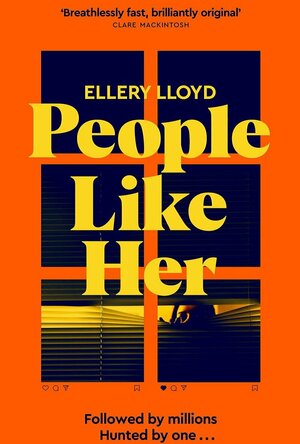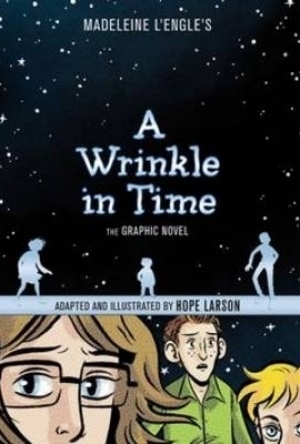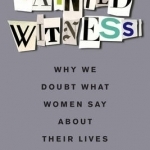
Tainted Witness: Why We Doubt What Women Say About Their Lives
Book
In 1991, Anita Hill's testimony during Clarence Thomas's Senate confirmation hearing brought the...
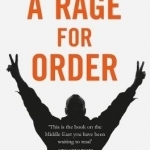
A Rage for Order: The Middle East in Turmoil, from Tahrir Square to Isis
Book
In 2011, a wave of revolution spread through the Middle East as protesters demanded an end to...
ClareR (6037 KP) rated People Like Her in Books
Feb 2, 2021
Emmy, the main character, is one of those outwardly lovely people, who beneath that veneer doesn’t really seem to care about anybody else. I even wondered at one point if she particularly liked her children or husband. Her husband seems long-suffering, backed in to a corner, having to put up with his wife being an Influencer on Instagram and ruling their lives based on the photos she must take, the places she must go to, and the companies she must appease. After all, she’s the main breadwinner in the family. He hasn’t managed to finish his second book after the success of the first. And then there’s another voice in the story.
At first this stalker seems only mildly threatening (like there’s a rating!), but as the book progresses and the stalker tells us more of their story, she begins to become more menacing.
Now, I post book reviews on Instagram more as a personal record. The likes and feedback are a bonus, and I get especially giddy if one of my favourite reviewers or, god forbid, the author, comments on what I’ve written! But to have millions of followers and millions of pounds depending on my content - it’s something that sounds far too stressful! This world was utterly fascinating to me. And the last 30% or so of the book is just devastating (I’m warning you!). This is well worth a read: I’d most definitely recommend this book - and I’m so glad that I chose this book by it’s cover!
Many thanks to the publishers, Mantle, for giving me access to a copy of this book on NetGalley.
Johnny Marr recommended track Philadelphia by Magazine in The Correct Use Of Soap by Magazine in Music (curated)
Heather Cranmer (2721 KP) created a post
Oct 10, 2020
Becs (244 KP) rated A Wrinkle in Time in Books
Oct 2, 2019
Audience: children – young adult.
Reading level: middle school.
Interests: science fiction, fantasy, mythical creatures
Style: Fantasy Sci-Fi
Point of view: Third Person with a mix of first person.
Difficulty reading: Not at all! As easy as eating a piece of cake.
Promise: Ground-breaking science fiction.
Quality: Like a banana split with extra sprinkles and a cherry on top on a hot day. 🙂
Insights: I absolutely kick myself in the a** for the not reading this sooner. I think everybody should read it, no matter how old you are. And I didn’t know it was part of a 5 book series until today! SAY WHATTTT!!!??? I’m definitely purchasing the complete series brand new (the copy I have is my mother’s and it’s old and ragedy).
Ah-Ha Moment: THE ENTIRE BOOK. No joke. Like I wasn’t expecting the main character to be a girl, let alone so young and to have such an ordinary family. You don’t see that typically!
Favorite Quotes: “Like and equal are not the same thing at all.” – This is great, especially with our history as human beings. We need to be seen as equals not just ‘like’.
“Life, with its rules, its obligations, and its freedoms, is like a sonnet: You’re given the form, but you have to write the sonnet yourself.” – Be true to yourself, for there is nobody like you in the entire universe.
“Experiment is the mother of knowledge.” – You can’t just go into life expecting to know everything and how it’s all going to end. You have to experiment because then you gain the knowledge that others may have not known.
Aesthetics: My old first edition copy has a really neat cover, it’s what drew me in originally. I loved the take on the story and how in my mind, I can actually imagine the different characters and their surroundings. It’s a weird yet interesting book.
“People are more than just the way they look.”

Collins English Dictionary and Thesaurus
Reference and Education
App
The new 2014 Collins English Dictionary and Thesaurus app is fast, easy-to-use, has all the latest...
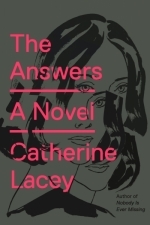
The Answers
Book
Mary Parsons is broke. Dead broke, really: between an onslaught of medical bills and a mountain of...
Literary Fiction
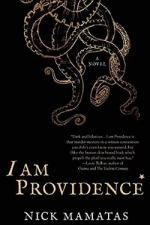
I Am Providence
Book
An author's murder during an H. P. Lovecraft fan convention reveals dark secrets beneath the printed...
Horror crime

The Reckoning (The Taker Trilogy #2)
Book
A love triangle spanning 200 years…Alma Katsu takes readers on a breathtaking journey through the...
